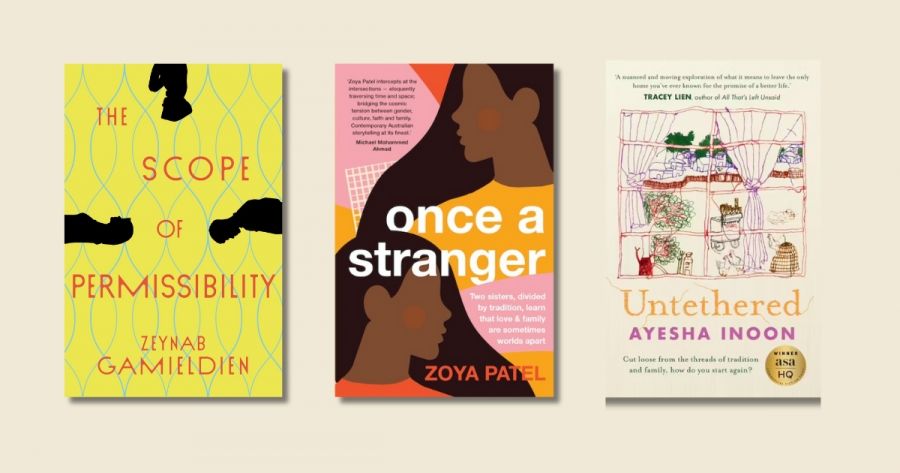
- Free Article: No
- Contents Category: Fiction
- Custom Article Title: Three débuts on new homelands
- Review Article: Yes
- Article Title: When home is not fixed
- Article Subtitle: Three débuts on new homelands
- Online Only: Yes
- Custom Highlight Text:
The migrant’s story is defined by a push and pull between homelands left and new ones found – past and present, tradition and modernity, family and fragmentation are constantly at odds with each other. The migrant’s child’s story enters a new space of liminality, belonging to two cultures, yet being outside both, creating a potential crisis of identity as profound as a crisis of home. The migrant’s grandchild continues the narrative, unearthing intergenerational fractures.
- Featured Image (400px * 250px):
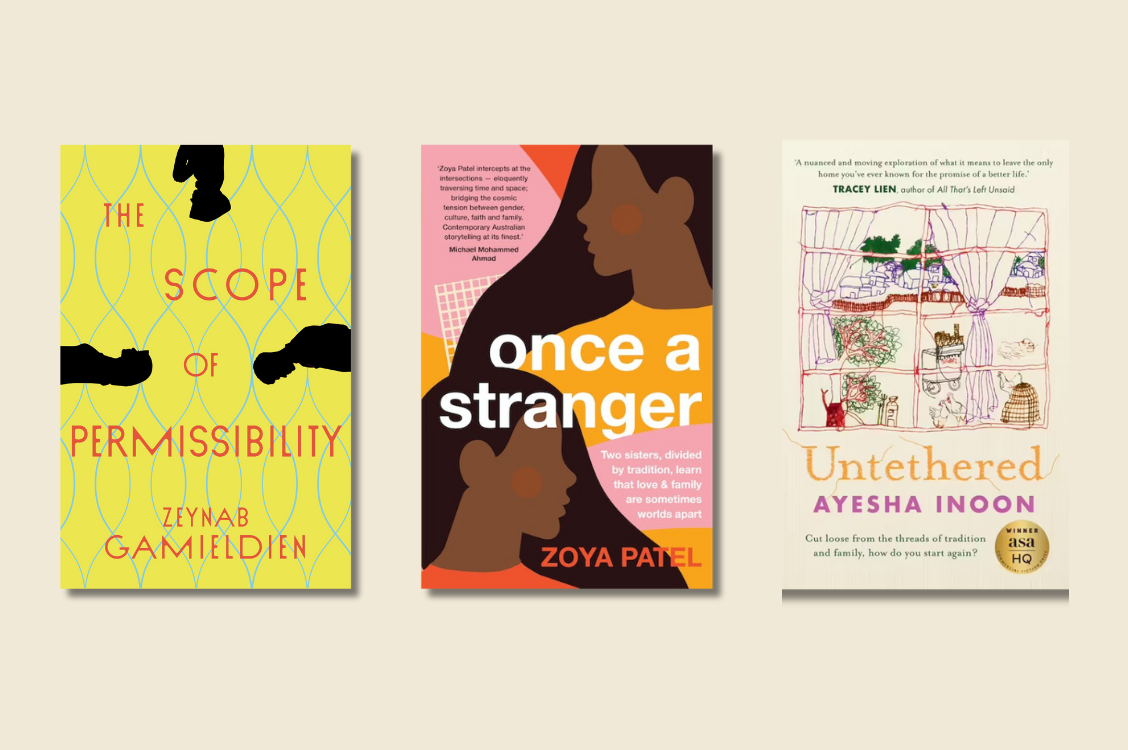
- Alt Tag (Featured Image): Rafqa Touma reviews three débuts on new homelands
- Book 1 Title: Untethered
- Book 1 Biblio: HQ Fiction, $32.99 pb, 306 pp
- Book 1 Cover Small (400 x 600):
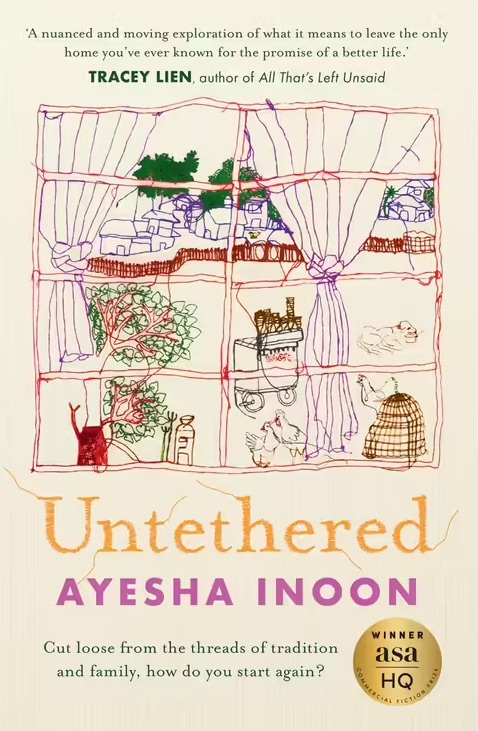
- Book 1 Cover (800 x 1200):

- Book 2 Title: The Scope of Permissibility
- Book 2 Biblio: Ultimo Press, $34.99 pb, 311 pp
- Book 2 Cover Small (400 x 600):
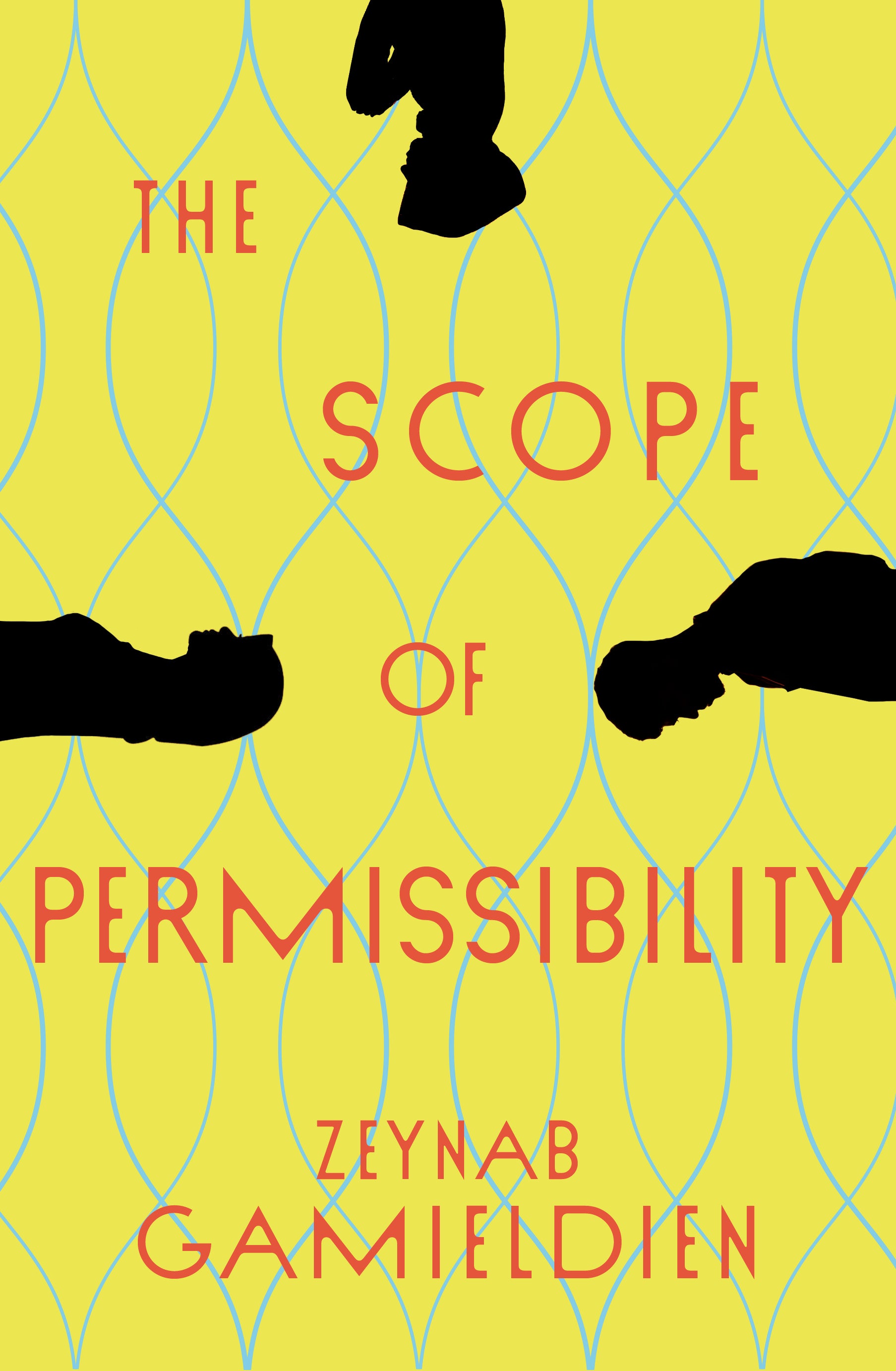
- Book 2 Cover (800 x 1200):

- Book 3 Title: Once A Stranger
- Book 3 Biblio: Hachette, $32.99 pb, 306 pp
- Book 3 Cover Small (400 x 600):
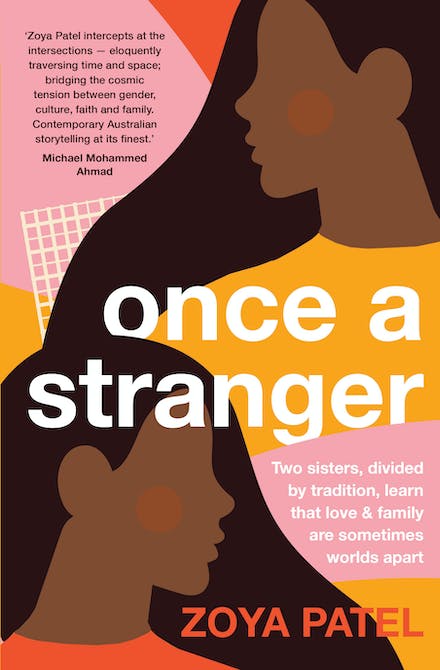
- Book 3 Cover (800 x 1200):

Ayesha Inoon’s Untethered (HQ Fiction, $32.99 pb, 306 pp) poses the question: if you were far from home, from the people who knew you and the expectations you were raised with, who would you be? That question haunts Zia, a young Muslim woman, from Sri Lanka to Australia, like a cloud of apprehensive hope.
The novel is structured around place. It opens in colourful Colombo, Sri Lanka, where traffic rumbles, roosters screech, and calls to prayer peal from mosques, churches, and temples. Here, Zia lives according to the conservative traditions dictated by her family. Hiding her dream of studying literature, she agrees to an arranged marriage with Rashid, trusting that the promise of love and stability will make up for her sacrifice.
Colombo is a comforting backdrop. But political unrest surges, and Zia and Rashid are forced to raise their newborn away from home. She wonders: ‘If we go … what about everyone else that we will have to leave behind?’ Her uncertainty foreshadows the heavy loss that plagues the novel’s second half.
Canberra is Colombo’s antithesis. With its still lakes, low clouds, and empty streets, the city is ‘devastatingly quiet’. Against the plainness of their new home, Zia and Rashid can feel each other changing. Inoon alternates her narration’s focus between the two, painting a raw portrait of the couple’s misgivings.
Rashid’s moods darken, rippling with animosity at the injustice of Australia’s lack of opportunity. Beside him, Zia balances on the brink of a breakdown: ‘It was as though her mind had grown foggy with loneliness, her limbs slow from an exhaustion that had no cause that she could define, every basket of laundry or sink full of dishes not just a job that needed to be done, but a reminder that she was alone in the doing.’
Inoon imposes recrimination upon Zia at her distance from tradition, and overwhelms her internal dialogue with doubt. Did other Australians notice that she was different, or was she the only one who was conscious of it? When would Zia and Rashid begin to reap the rewards of their sacrifice? Inoon offers her protagonist little respite from the bleakness, other than when Zia finds a sense of quiet control during driving lessons with an Australian man, Pete.
In Untethered, Inoon writes with vulnerability. Her protagonist’s story is drawn from her own, as is acknowledged in the book’s author note. As the novel progresses, an initial focus on homeland becomes more and more intertwined with peripheral ideas of family and gender. The influence of her new home pulls at threads of Zia’s identity – as a daughter, mother, wife, and woman discovering autonomy for the first time – where her sense of self unravels in a tangle of revelation, resilience, and freedom. By the novel’s end, Zia has begun to reconcile the disparate versions of herself, between Canberra and Colombo, present and past.
Zeynab Gamieldien’s The Scope of Permissibility (Ultimo Press, $34.99 pb, 311 pp) deals with the intersection of competing beliefs. The novel is told from the perspectives of Sara, Abida, and Naeem as they navigate university and their first years of young adulthood.
Allied by their faith, they find solace at their university’s Muslim Student’s Association: ‘Abida loved this place, loved that in here they were not marked by their difference but their similarity.’ The Association members, bound by religion and propriety, keep their desires and pastimes private. Within its walls, a burgeoning covert relationship forms between Sara and Naeem. But from whispers, secrets emerge.
Gamieldien presents the coming of age as a Muslim in Australia as a heartrending internal debate testing the confines of religion and desire. She pens inner principles of faith with candour: ‘Everything a Muslim did was permeated with a sense of urgency. They were mindful that the life of this world was temporal … and it showed in everything they did. They didn’t do gap years, they didn’t go off and try to find themselves or live in a share house at the age of thirty. Everything counted, every action had consequences.’
In testing the scope of what is permissible in Allah’s eyes, Sara, Abida, and Naeem diverge. Naeem is rooted in conservative attitudes by fear, transposing his Bangladeshi family’s expectations – ‘they did not approve of him being involved in any Islamic activities outside of their own frame of reference’. Abida is intelligent, opinionated, a defender against injustice. She runs for presidency of the Association, but her righteous judgement of others threatens her undoing. And Sara, a white-passing Muslim, is left to decide where and with whom she fits in:
Whenever people learned her name, they asked the same erroneous questions about when her parents had converted to Islam and where they had migrated to South Africa from. She did not know the right words to explain that a British forebear had taken what he wanted from maidservants, that their descendants retained their religion in secret but not their names or languages or even where they came from.
Their friendships are challenged by breaches of trust, and their faith is challenged by each other. Across her cast of characters, Gamieldien deftly moderates a tug-of-war of religion, expectation, ambition, desire, and shame – holding up these tensions like a mirror to readers.
The gravity of internal conflict also features in Zoya Patel’s Once A Stranger (Hachette, $32.99 pb, 306 pp). It opens with an email: ‘Our mother is very sick. The doctor has estimated two years. I think you should come home.’ This is the first time Ayat has heard from her family in six years. She lives in Melbourne with her boyfriend, Harry – ostracised by her older sister Laila and mother Khadija in Canberra, who are steadfast Muslims.
Ayat’s journey back to her childhood home prompts a crisis of identity. Here, Patel presents the essential paradox of returning to something that causes pain. Her protagonist cannot restore the point of innocence from which she has grown since her rift from family. But Khadija’s sickness drives Ayat to confront her own nostalgia.
When she recovers her Indian garments and jewellery, her past-self is triggered. ‘These little jolts of memory … were like clues leading her back to a person she could faintly remember but who she carefully painted over in a different colour.’ When she reunites with family, she recoils from a clutter of unanswered questions. What was it like seeing her mother after so many years? Seeing the relics of their fractured relationship in the silence between them? How was it to be exposed to the hurt she caused, while not forgetting the hurt she has experienced? Was Harry worth it?
Set against the timer of their mother’s sickness, the present-tense narrative is interspersed by vignettes from before the estrangement. Patel jumps across each woman’s perspective, making raw the migrant mother’s protective fear of the unfamiliar – ‘it wasn’t just that Khadija was controlling … it was that she was terrified of everything’ – and the migrant daughters’ subsequent isolation from their new world. The complexity of assimilation is clear. The reader is left not knowing with whom to place their sympathies.
In the agonising reconciliation of Ayat, Laila, and Khadija, Patel disrupts the idea of home. It is not fixed, nor is it defined by the physical. Rather, it is the outcome of belonging, not to a place or culture but to its people.


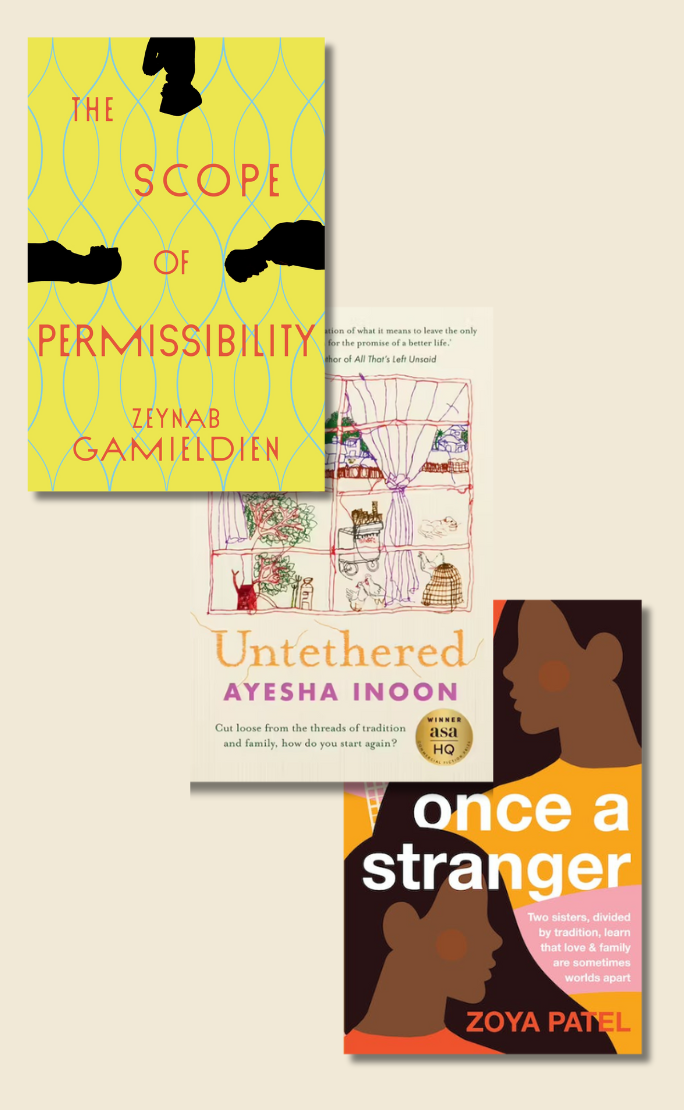
Comments powered by CComment